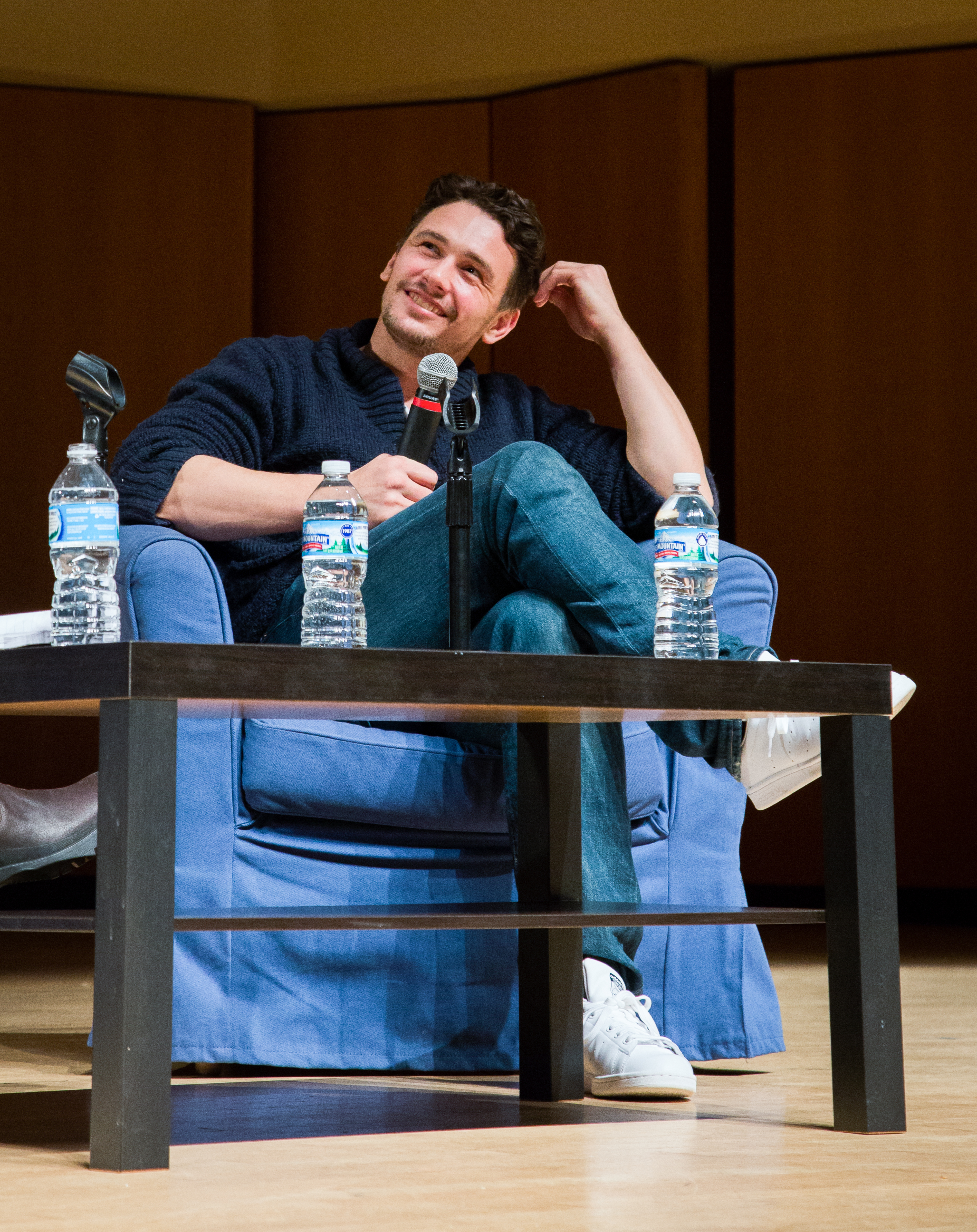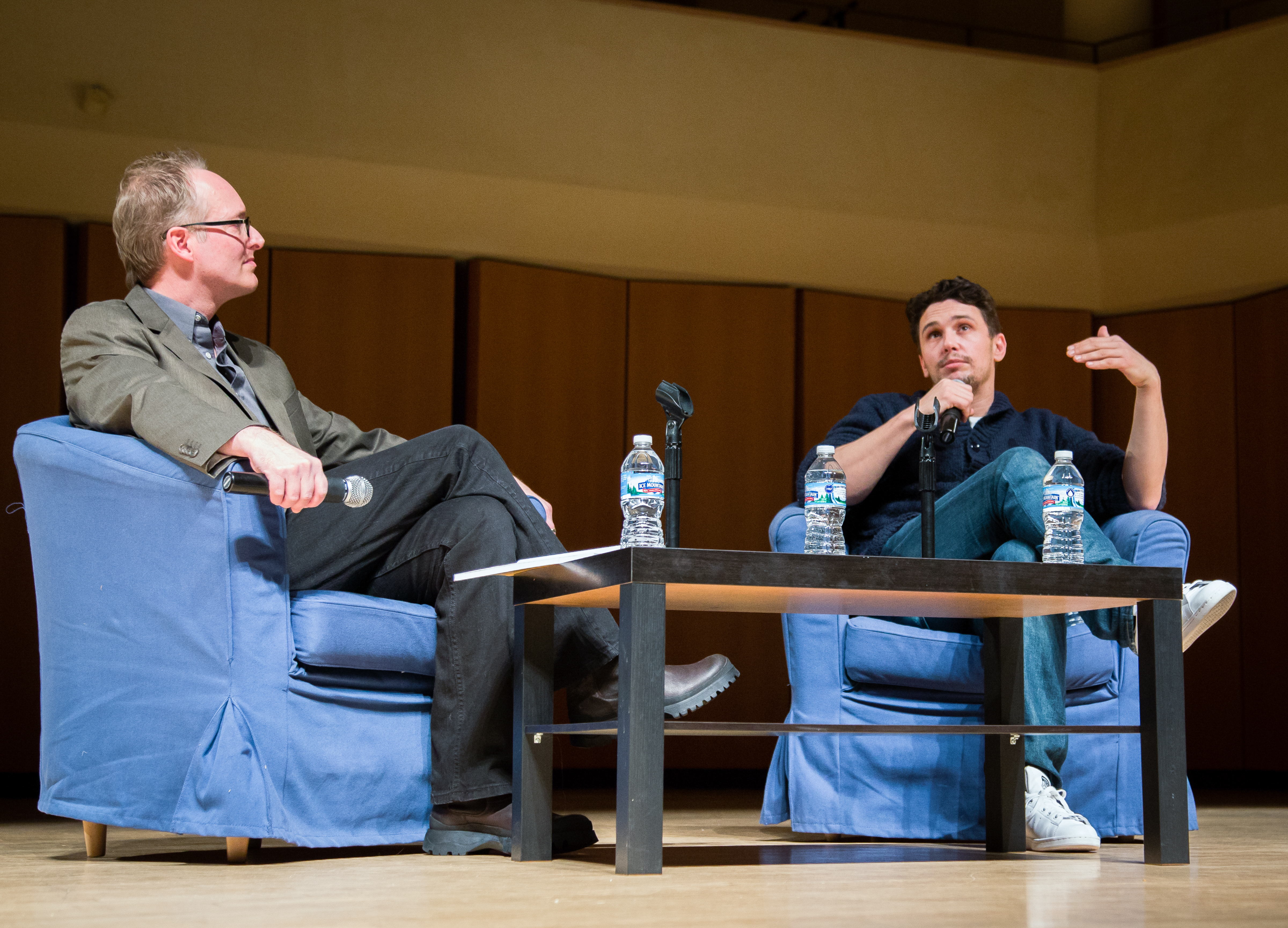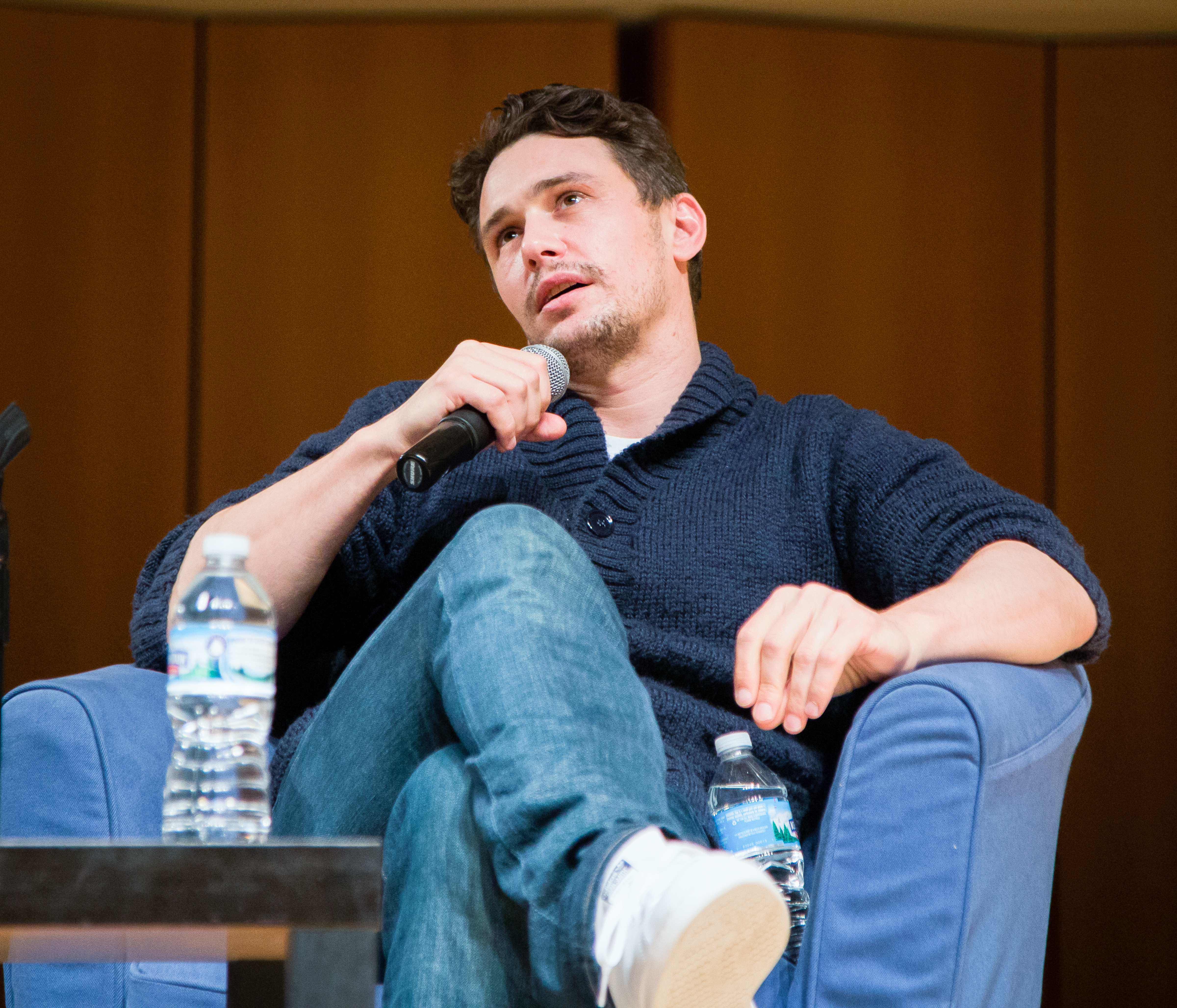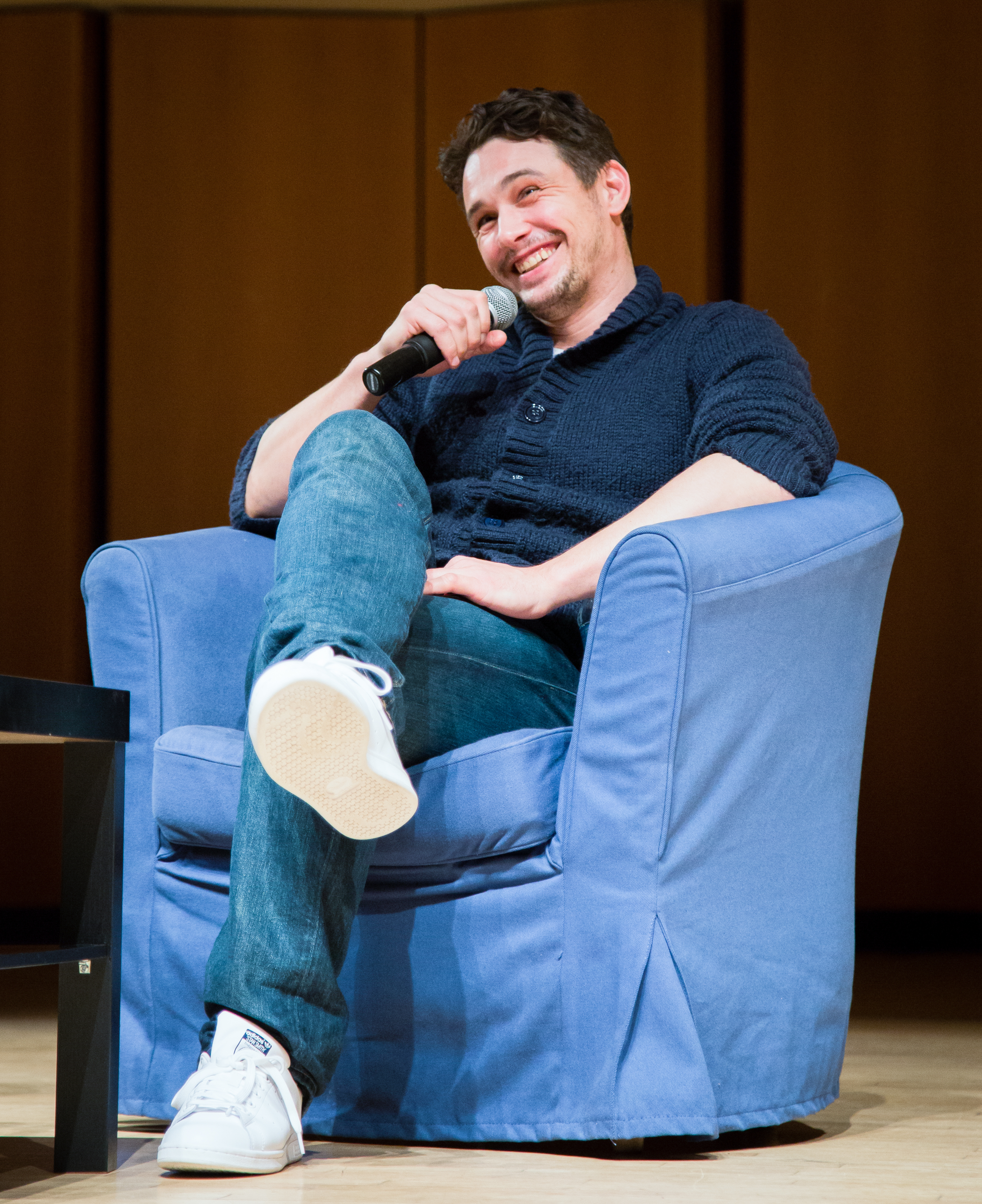Just who really is James Franco? Between contributing his acting chops to the Apatow-verse, the Spider-man trilogy and prestige pics, studying and teaching at a laundry list of the nation’s most prestigious universities and reading and writing a proliferation of poetry, Franco just might be the “Renaissance man” they say he is. Add in a seemingly perpetual aloofness, and he might just be the most beguiling celebrity working right now.
No amount of snow could keep NU students from cramming in to Pick-Staiger to find out more about James Franco on Saturday.
A departure from A&O Productions’ usual winter speaker-format, the sold-out event was co-sponsored by A&O and NU Hillel. Past speakers such as B.J. Novak have been more traditional stand-up routines, whereas Franco held a Q&A with RTVF associate professor Jeffrey Sconce. He kept it brief as the audience was clearly clamoring for Franco, and when Franco finally walked onstage, everyone erupted in applause.
“This is so weird,” Sconce said to the crowd as he walked onstage to introduce Franco. “Obviously you all know who’s here tonight. James Franco: writer, director, actor.”
The evening’s tone fluctuated wildly from high-energy to low-key, aggressively academic to laugh-out-loud hilarious, as Franco philosophized on everything from the challenges of adapting Faulkner’s The Sound and the Fury into a film to already-cult classic Spring Breakers’ thematic complexities.
To start things off, Sconce asked Franco about why he values book learning and the importance of his going back to school. Franco proceeded to launch into a description of his intellectual journey: growing up in Palo Alto (which drew applause, and a characteristic nonplussed response from Franco) and wanting to go to the Rhode Island School of Design to pursue art despite his parents’ objections. Despite being interested in much of what interests him now, like film and literature, he “didn’t really know any practical steps to, you know, become any of those things,” only finding, during his freshman year at UCLA, that “there’s a way to actually pursue this as a career.”
He dropped out of school to pursue acting. Because his parents wouldn’t support his acting aspirations, he worked at the school cafeteria and McDonald's to make enough money on the side, meanwhile reading voraciously on film sets, as opposed to playing videogames and gossiping. At first, he thought he was overcompensating: “I was like the scarecrow in the Wizard of Oz…’I always felt like oh, if I only had a brain.’” His reading habits finally got “to the point where I was a social idiot and just didn’t know how to interact with people outside of work.” Finally, after eight years in the acting business, he reenrolled at UCLA, excited again to find people who wanted to talk about literature.
Asked about his adaptation of The Sound and the Fury, Franco quickly lit up (or got as excited as James Franco can conceivably appear to get) and spoke freely on the odd art of adaptation.
“I saw my directing efforts as a little more liberated,” he said, reconciling his blockbuster comedies and action films with his more indie side. “If I find a kind of balancing point…they will afford the opportunity to do the other ones.”
Going on to describe really everything about the novel, which I’m sure anyone in the audience from Professor Julia Stern’s Faulkner class appreciated, he said the most important thing in adapting a novel is “to get the spirit of the book on the screen.” The novel, which extensively uses internal monologues and different points of view, proved difficult to translate to the screen, to which end he discussed using avant-garde cinematic techniques such as split screens.
It also proved difficult to adapt as a literary classic. Franco evoked the Hollywood wisdom that, in general, “A great book makes a horrible movie…a dime store book can make a great movie.” In the end, though, haters are always gonna hate, and he seemed extremely excited about his take on the story. (The project is currently in filming.)
Other highlights included his admonition to aspiring actors that “you need one or two or three of those roles where you just kind of go crazy.” Whether sleeping on streets to prepare for the role of a homeless man or not talking to anyone for four months to prepare for playing James Dean (“[my girlfriend] was so upset, I finally said OK we can talk on the phone for an hour a week”), Franco is known for his radical techniques of getting into character.
“I’m not playing the tiger, I am the tiger... I’m James Dean, just call me James.”
Another highlight were some of the questions asked by the audience. Franco’s thoughtful responses meant that of the 20 or so people who came to the microphone, only five got their questions answered. But thoughtful they were! A question about what Spring Breakers’ intent was drew an elaborate explanation, much like one he gave for This is the End, of the complexities of its film-making: how it “stands in two worlds,” which (I took to mean) one thoroughly enamored with “the culture” and one thoroughly deconstructing it, and how Alien (Franco’s character) is essentially Obi-Wan Kenobi. Likewise, a question about what Jonah Hill is actually like prompted a heartfelt ode to his buddy. Franco said that “Jonah faced his worst fears” during the Comedy Central Roast of James Franco.
The evening ended with a student asking if Franco would take a selfie with him, in one giant group selfie he posted on Instagram.
“Northwestern!!!!! WAS Great!! What a good time. Selfie with everyone!!!!"



